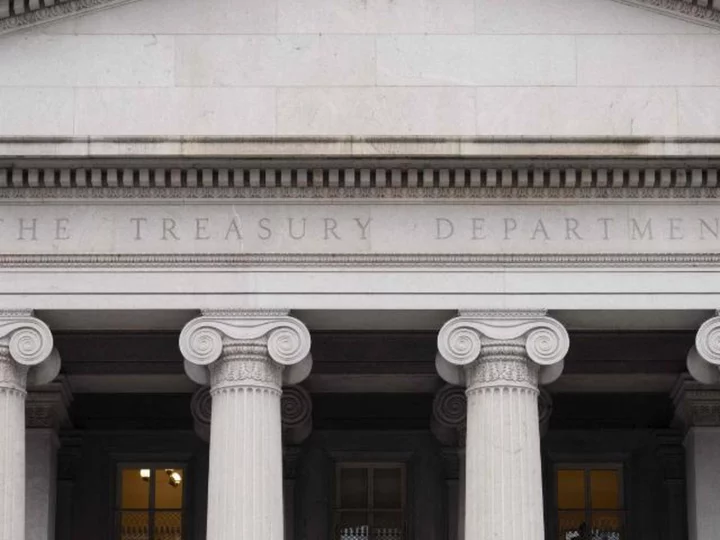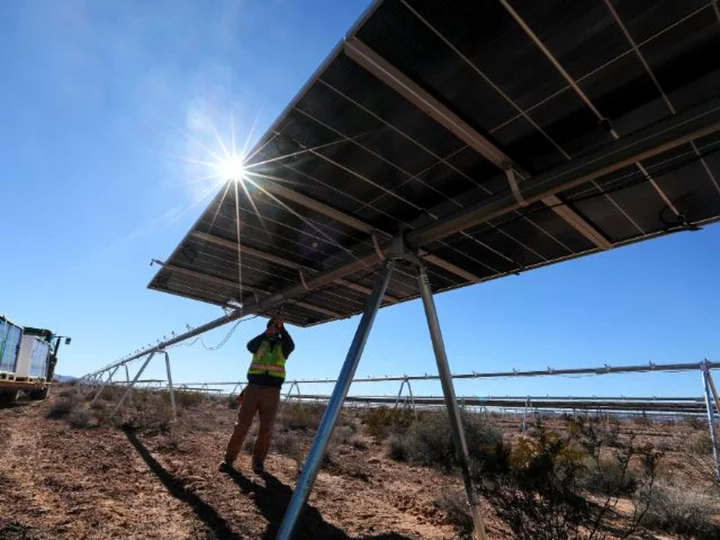With barely a week to go before the United States defaults on its debt for the first time in history, the White House and congressional leaders remain far apart on any deal.
Failing to raise the debt ceiling would wreak havoc across the US economy and Americans' personal finances.
House Speaker Kevin McCarthy on Tuesday told a closed-door meeting that "we are nowhere near a deal," according to sources. A default could affect everything from Social Security payments to the flow of money across the world.
But even in the face of a possible, never-before-seen global economic crisis, there are steps Americans can take to protect themselves from some of the effects.
Here's how you can prepare for a potential debt default.
Social Security payments could be delayed
The roughly 66 million retirees, disabled workers and others who receive Social Security benefits should brace themselves for potential delays in their monthly checks.
Many of these folks depend heavily on these funds to cover their living expenses, including food, rent, utilities and health care. The average benefit for retired workers is $1,827 a month in 2023.
Almost two-thirds of beneficiaries rely on Social Security for half of their income, and for 40% of recipients, the payments constitute at least 90% of their income, according to the National Committee to Preserve Social Security and Medicare.
"Beneficiaries have earned their benefits through a lifetime of hard work and they rely on their benefits," Max Richtman, the committee's CEO, wrote to lawmakers last month. "These payments are at risk of not being paid on time or in full for the first time in our nation's history."
However, it's possible the Treasury Department could continue making on-time payments because of the entitlement program's trust fund, said Shai Akabas, director of economic policy at the Bipartisan Policy Center.
The benefits are disbursed four times a month, on the third day of the month and on three Wednesdays. Roughly $25 billion a week is sent out, according to the Congressional Budget Office.
Military families should keep extra cash
Some Department of Defense workers may see their paychecks delayed — including 1.4 million active-duty members of the military and more than 2 million federal civilian workers. Federal government contractors could also see a lag in payments, which could affect their ability to compensate their workers, CNN previously reported.
Military families should make sure they have extra money and that their emergency funds are topped off to weather a missed paycheck, Mike Hunsberger, owner of Next Mission Financial Planning and an Air Force veteran, told CNN. For those with thin budgets, Hunsberger suggested looking again to see if there's anything else to cut back on, at least temporarily.
Every military service has an organization that can help with temporary loans for those who could be in a crunch — think a car breaking down or an emergency ticket home for a family death, Hunsberger said. Some military-facing banks could also be of assistance.
Those who receive veterans benefits should also have an emergency stockpile prepared — disability payments and pensions for some low-income veterans and their surviving families could be affected by a default.
Expect volatility in bonds
Bond investors should expect volatility even during deal negotiations. US Treasuries are considered to be the world's safest assets because they are backed by the full faith and credit of the United States, but the uncertainty over a debt ceiling deal adds risk.
With Treasuries, the key question is when investors will be repaid, not if.
Experts assume that even if the United States briefly goes past the X-date, it will be resolved quickly and the government will make good on its obligations, CNN reported.
If you invest in bonds, pay attention to when your Treasury bills are maturing.
Those who have invested in Treasury bills maturing on or right after June 1 and who definitely need their money at that time — for example, to pay their own bills — might consider selling those bills now and reinvesting in bills that mature sooner, Collin Martin, director and fixed income strategist at the Schwab Center for Financial Research, suggested in an interview with CNN.
And for those into bond funds, check to see that the bond portion of your portfolio has adequate exposure to intermediate and longer-term bonds, rather than being too heavily weighted toward short-term higher yielding bonds.
Stick with high-quality investments
Steer clear of corporate junk bonds or emerging market bonds, CNN has previously reported. That's because if the US does default, high-risk debt instruments will come under the most pressure.
"If you need to borrow money, you need the confidence of the markets to lend to you," Martin said.
"Our general guidance is for investors to maintain a balanced portfolio in keeping with their goals and to remain disciplined. A long-term view is especially important during periods of uncertainty," Vanguard spokesperson Jessica Schifalacqua said previously told CNN.
Stocks could shed as much as a third of their value even if an agreement is reached, erasing $12 trillion in household debt, Moody's Analytics said.
Adjust your 401(k) if needed
Review your equity-to-bond allocation and make any necessary adjustments, Martin advised. Stocks, which are riskier investments than bonds, will probably get more volatile as the deadline date approaches, CNN has reported.
If the US does default, it has to then be resolved, experts say. And when it does, there will be a "relief rally" in the market, Callie Cox, eToro US investment analyst, previously told CNN.
However, there could be an immediate correction period after a deal is reached as the Treasury replenishes the cash it burned through when it couldn't borrow money, Michael Reynolds, vice president of investment strategy at Glenmede, told CNN.
Investors may be tempted to buy the dip, but there are "so many other pressures weighing on the economy," Cox said.
"You don't want to get over-invested with a recession on the horizon," Reynolds said. In his view, it's only worth taking advantage of a market sale if the S&P 500 dips below 16% of its current value.
Short-term investors should be even more cautious, experts said.









